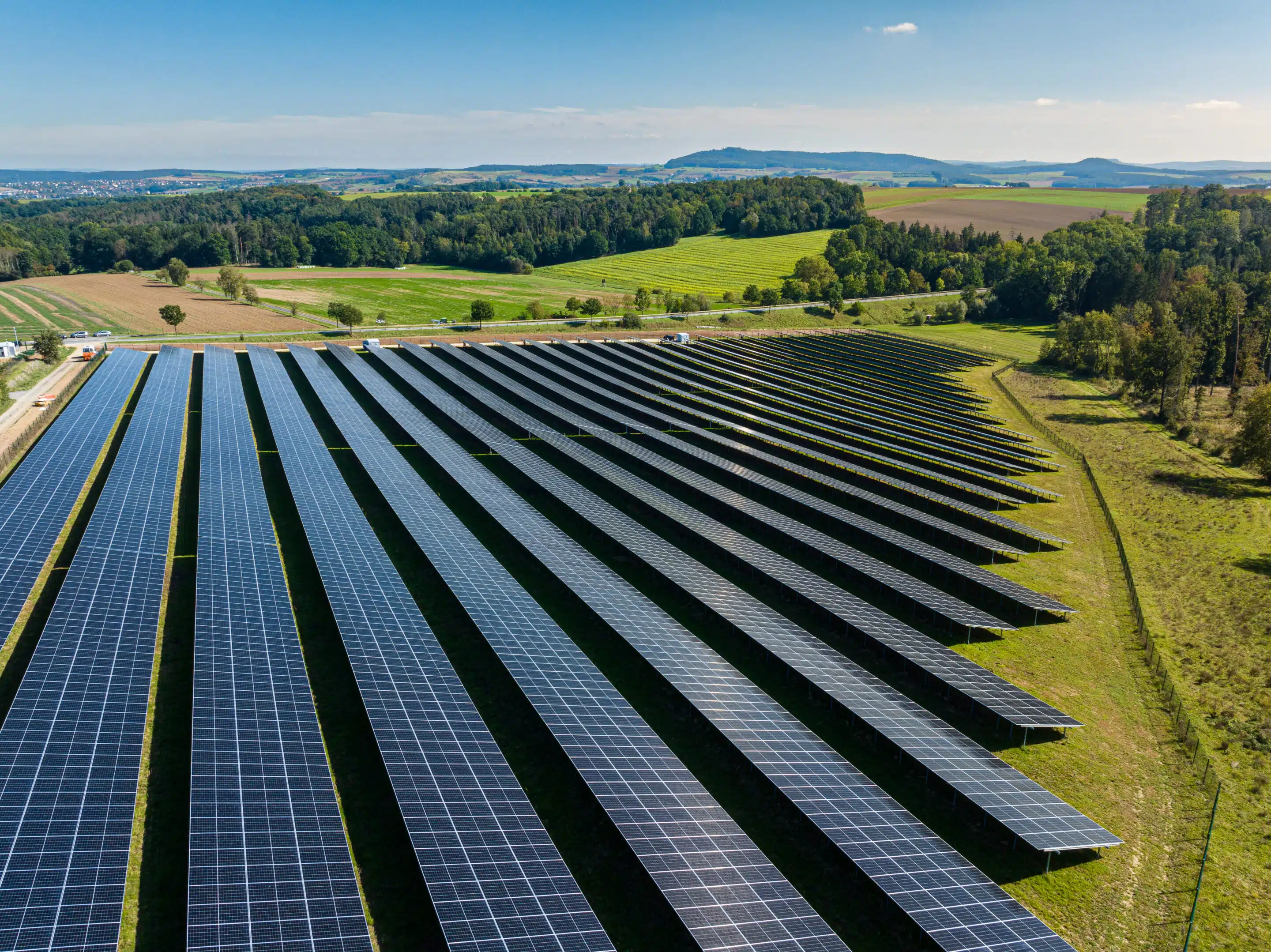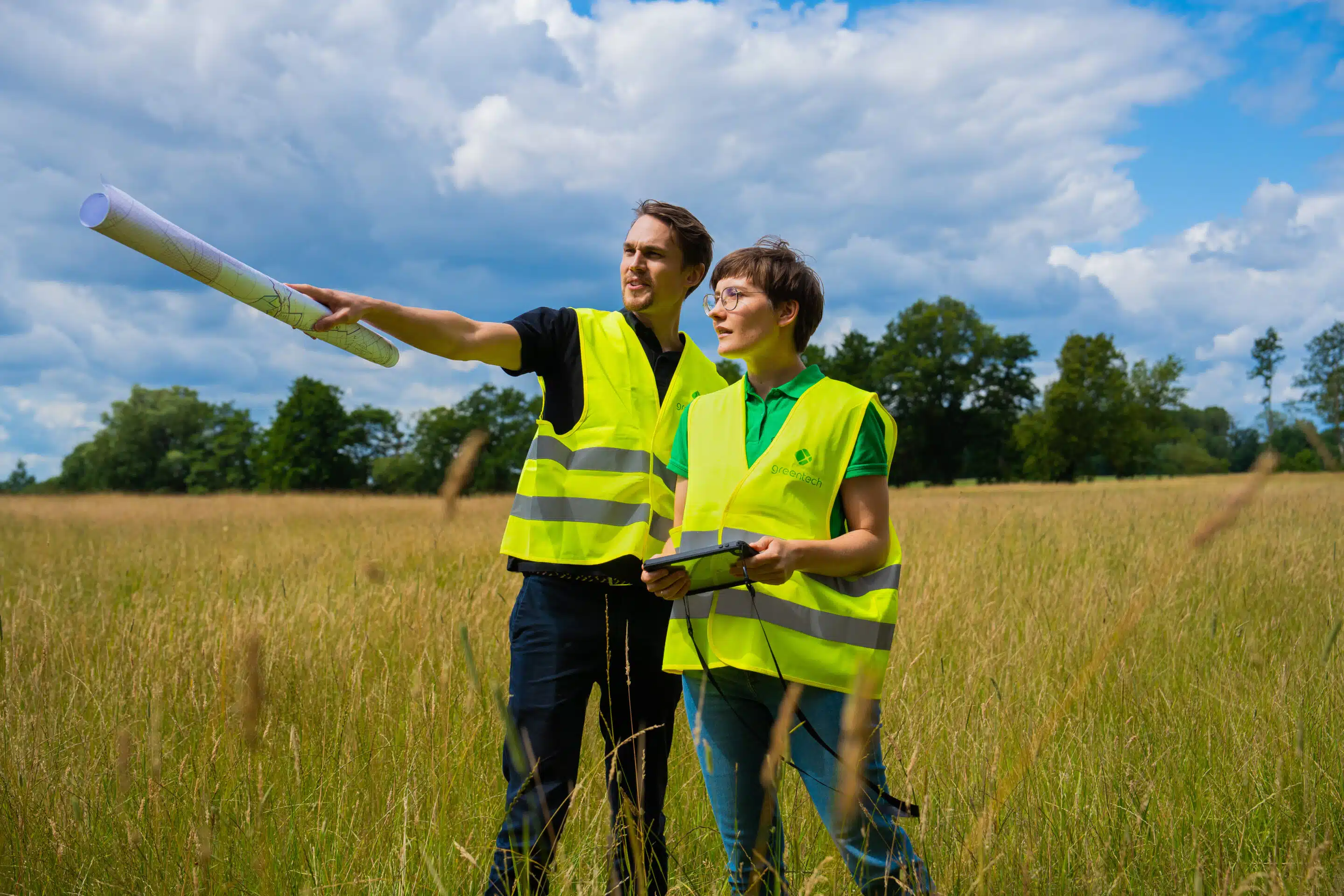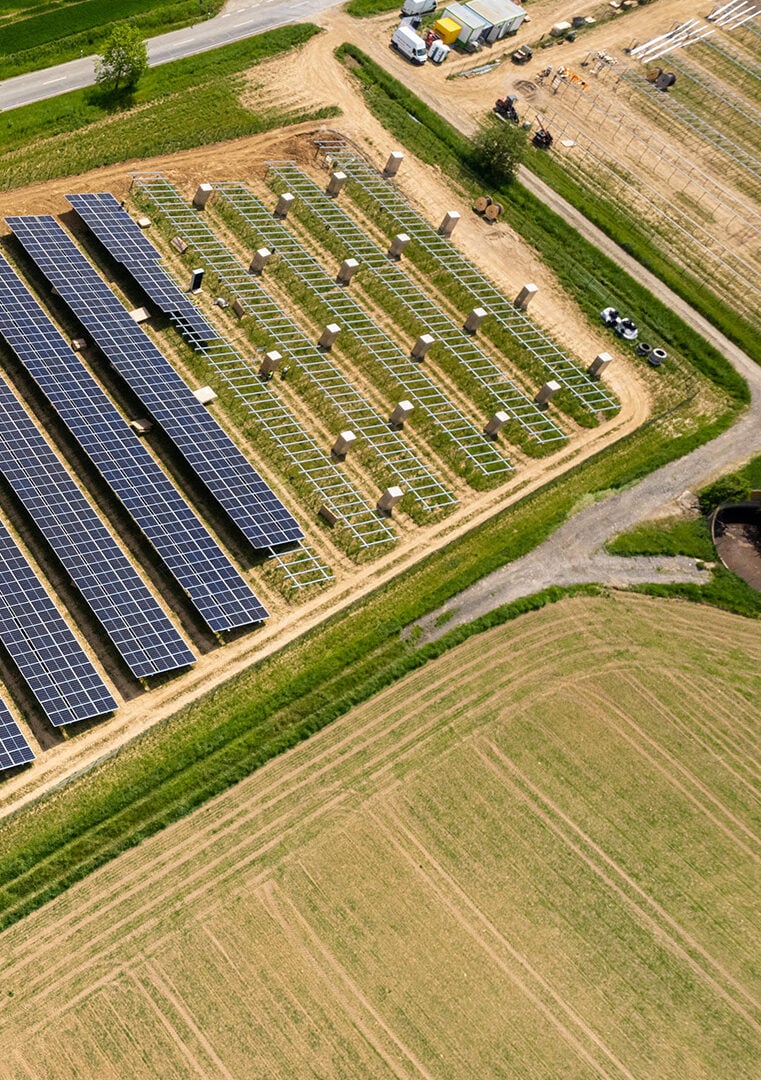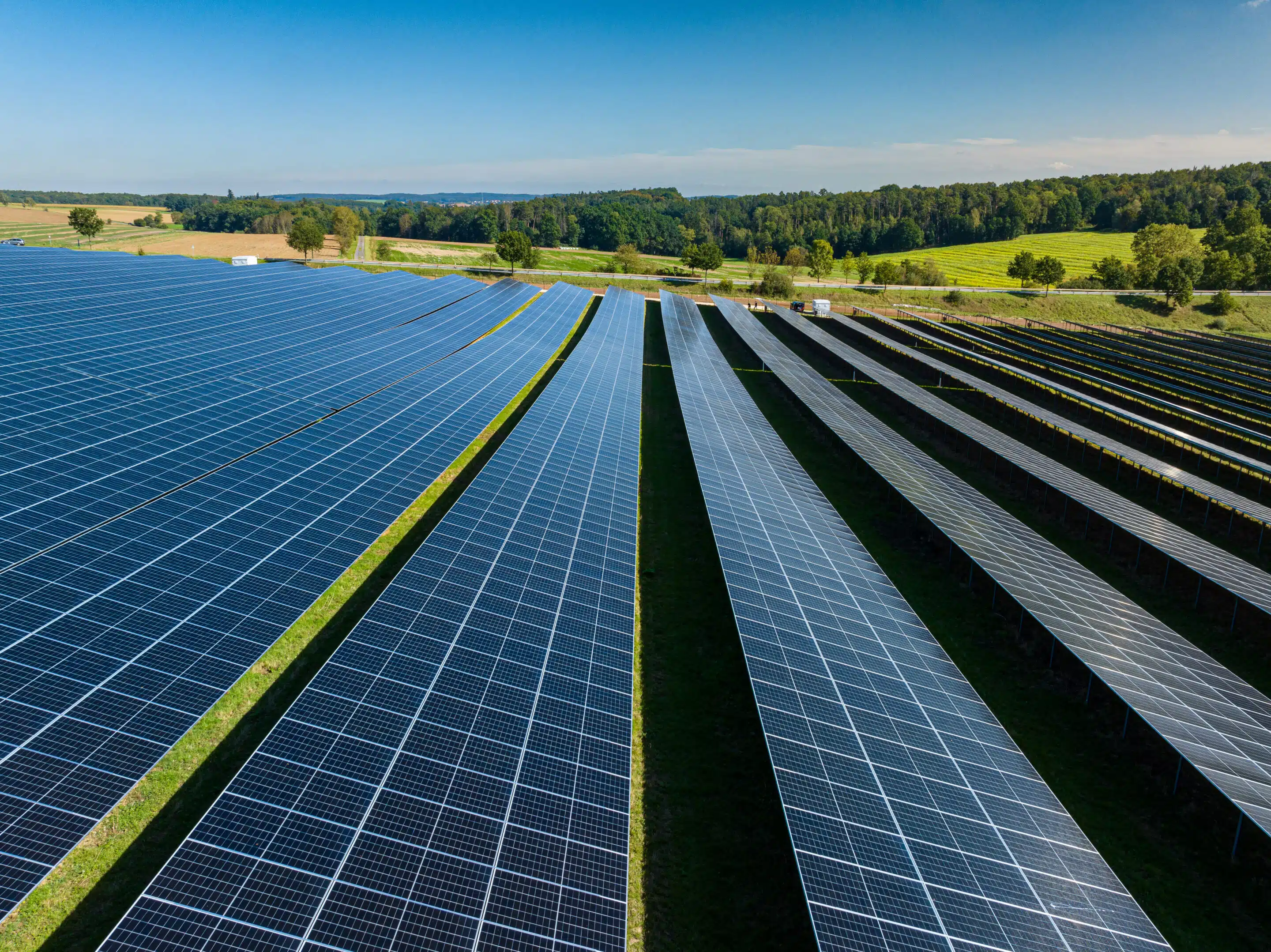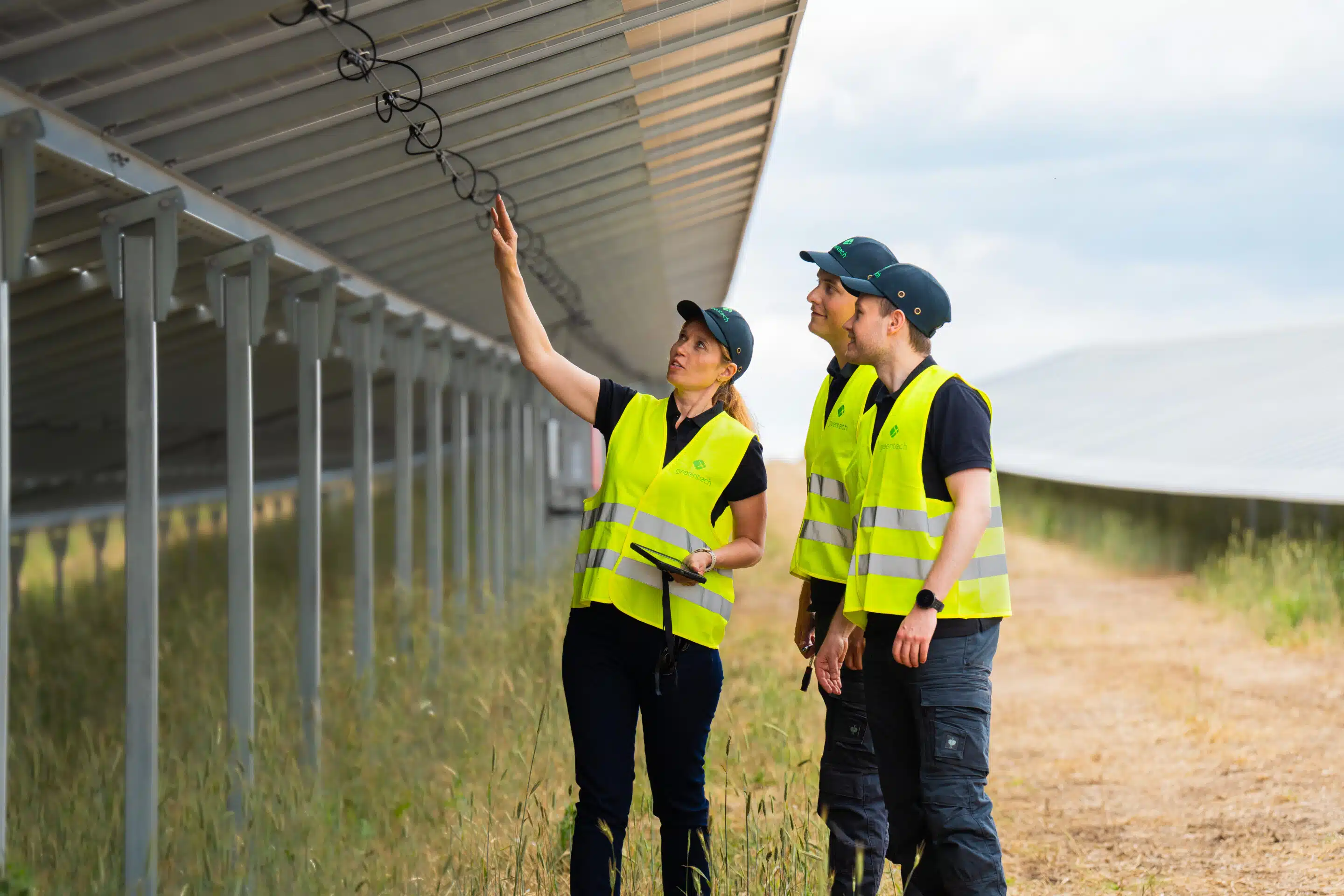Project development of battery storage systems
Preparing electricity grids for the future with BESS.
We are flexibilizing the energy of the future
Our core market for the development of BESS is Germany. We are looking at both stand-alone and hybrid or site-integrated systems in combination with photovoltaic parks (co-location).
We develop these types of battery storage systems:
Co-Location Hybrid
Co-Location
Stand alone
Why does the energy transition need battery storage systems?
Stabilize networks
Battery storage systems work to support the grid and help to distribute more electricity from renewable energies. This can save billions in redispatch costs every year.
Making renewable energies usable around the clock
Battery storage systems create flexibility in the electricity market. In this way, renewable electricity can be stored cheaply during hours with a lot of sunshine and wind and then fed back into the grid when there is a lull or it is dark. In this way, we can accelerate the expansion of renewables.

Accelerate the phase-out of fossil power generation
Germany wants to phase out coal-fired power generation by 2030 and only operate gas-fired power plants as conventional power plants. To achieve this, we need new flexible generation capacity in the near future. Battery storage systems can provide this quickly and cost-effectively and should therefore provide a large proportion of the required capacity by 2035.
Our services
We advise you and support you as an experienced partner with extensive expertise.
For land owners
We develop your site: First, we check whether the site is suitable for the installation of a battery storage system. Among other things, we assess the availability of grid capacities, the building law framework and also take your noise and visual protection requirements into account.
As a lessor of land, you benefit from long-term rental income at an attractive level over 15 years and longer.
We take care of the entire implementation process, from technical planning, obtaining all the necessary permits, grid connection, electricity marketing and the construction and financing of the storage facility.
For municipalities and local authorities
With a large battery storage system, your municipality can make a decisive contribution to the success of the energy transition and your climate protection concept. You strengthen the local economy, increase the added value of unused land and generate additional income on the municipal side, e.g. through leasing/sales and business taxes.
You also strengthen your local electricity grid and can reduce the shutdown of wind power and photovoltaic systems.
For project developers
Are you looking for a competent and experienced development partner with a strong financial background to cover certain project development tasks within the framework of co-development? Or would you like to sell your project rights from a certain stage of development? Then get in touch with us!
Components of a battery storage system
Battery cells
Battery management system (BMS)
Inverter
During the charging process, these convert the alternating current from the supply grid into direct current. Conversely, they convert the direct current from the batteries back into alternating current so that it can be fed into the grid.
Cooling/air conditioning
The batteries like it neither very cold nor very warm. For this reason, special air conditioning technology is required – either air or water-based.
Communication & Power Management
Similar to solar systems, battery systems must also be able to be monitored and controlled remotely. This requires data loggers, routers and telecontrol technology.
Transformator
BESS – From development to operation
We analyze an area with regard to its suitability as a location for a battery storage system. In doing so, we evaluate both the approval situation and the economic factors. We then enter the technical preliminary planning phase and present the project to the community.
- Site identification, site inspection and assessment
- Securing land through a lease or purchase agreement
- Grid connection request to the grid operator
- Initial design and preliminary technical planning
- Preliminary building application and project presentation in the community
Site analysis & pre-planning
The requirements for a successful planning application are developed together with the local municipality and the district.
- Planungsimpulse der öffentlichen Hand und Nachfragetreiber
- Obtaining building rights with the participation of the public and public interest groups
- Grid connection planning, route
Approval planning
The BESS is built and connected to the grid.
- Detailed and implementation planning, based on which the components are purchased
- Construction of the storage facility
- Grid connection and commissioning
Construction
Reliable operation of the storage tank after completion.
- Maintenance and repair (technical management)
- Asset management (commercial management)
- Electricity marketing
- Repowering / extensions
Operational management
Site analysis & pre-planning
We analyze an area with regard to its suitability as a location for a battery storage system. In doing so, we evaluate both the approval situation and the economic factors. We then enter the technical preliminary planning phase and present the project to the community.
- Site identification, site inspection and assessment
- Securing land through a lease or purchase agreement
- Grid connection request to the grid operator
- Initial design and preliminary technical planning
- Preliminary building application and project presentation in the community
Approval planning
The requirements for a successful planning application are developed together with the local municipality and the district.
- Planning impetus from the public sector and demand drivers
- Obtaining building rights with the participation of the public and public interest groups
- Grid connection planning, route
Construction
The BESS is built and connected to the grid.
- Detailed and implementation planning, based on which the components are purchased
- Construction of the storage facility
- Grid connection and commissioning
Operational management
Reliable operation of the storage tank after completion.
- Maintenance and repair (technical management)
- Asset management (commercial management)
- Electricity marketing
- Repowering / extensions
New areas wanted!
We are looking for
- Areas of 0.5 hectares or more for the construction of BESS: arable or industrial land, preferably in the vicinity of 110 kV transformer stations. Lease or buy.
- Areas of 5 hectares or more for the construction of solar installations: arable land, EEG, green and conversion areas. Lease or buy.

Your BESS specialists

Florian Stüwe
Business Development Manager BESS
Florian Stüwe studied Industrial Engineering, specialising in Energy and Environmental Management, at the universities of Flensburg, Alicante (Spain) and Koblenz. He has been working for greentech since 2016 and was responsible for the management of technical plant operations team in senior positions from 2018 to 2023. He has been part of the business development team for the BESS division since 2024.

Moritz von Daniels
Business Development Manager BESS
Moritz von Daniels studied industrial engineering at the University of Bayreuth, the Technical University of Berlin and the Politecnico in Milan. His work focuses on the project development of battery storage systems. Previously, he worked in the energy sector and most recently at E.R. Capital Holding, shareholder of greentech, as part of the investment and business development team.

Jens Liebold
Senior Business Development Manager BESS
Jens Liebold studied industrial engineering at the HTW Dresden. He has many years of experience in the development and construction of battery storage systems. During his 10 years at an automotive OEM, he promoted the 2nd life use of traction batteries in the stationary environment.


